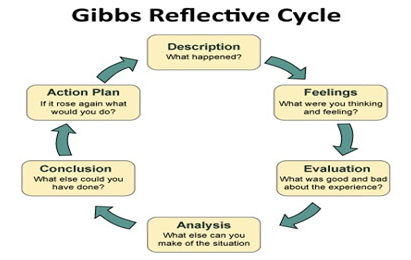

The model argues that we start with an experience - either a repeat of something that has happened before or something completely new to us. Based on theories about how people learn, this model centres on the concept of developing understanding through actual experiences and contains four key stages: Kolb's model (1984) takes things a step further. (ed.) (2007) Practicing Clinical Supervision: A Reflective Approach for Healthcare Professionals. This is equally valid as an outcome and you should not worry if you can't think of something to change.īorton, T.

Will we change a behavior, try something new or carry on as we are? It is important to remember that there may be no changes as the result of reflection and that we feel that we are doing everything as we should. We should then reflect on the experience by asking 'so what?' - what did we learn as a result of the experience? The final stage asks us to think about the action we will take as a result of this reflection. This gives us a clear idea of what we are dealing with. Firstly we should describe what the situation or experience was to set it in context. Driscoll based his model of the 3 What's on the key questions asked by Terry Borton in the 1970s:īy asking ourselves these three simple questions we can begin to analyse and learn from our experiences. Another simple model was developed by Driscoll in the mid-1990s.


 0 kommentar(er)
0 kommentar(er)
